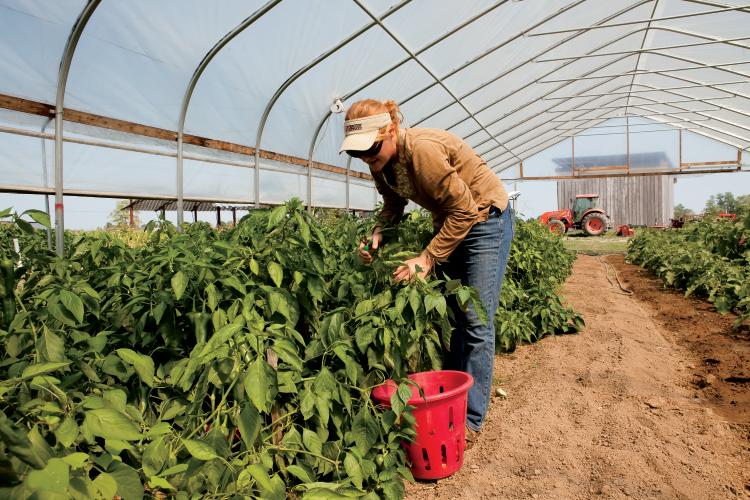Home > Kentucky > Kentucky Ag Education > University Programs Extend a Hand to Kentuckians
University Programs Extend a Hand to Kentuckians

For an Anderson County farm family, dropping by a Cooperative Extension Service office in person recently was better than doing research on the Internet.
Their daughter was putting on her pants one morning and a spider bit her. They captured the spider, put it in a jar and headed for the extension office. When they got there, the agent didn’t recognize the spider. But he linked through teleconference to an entomologist at the University of Kentucky.
Within 15 minutes of arriving at the extension office, they had their answer: the bite was from a brown sac spider, often confused with the more menacing brown recluse, but not nearly as dangerous.
For Gary Palmer, assistant director for agriculture and natural resources at the University of Kentucky, the incident reinforced just how wide-ranging an extension agent’s job can be – and how important.
“Whatever the question might be – sometimes they get pretty complicated – we try to answer it,” Palmer says.
Kentucky’s agricultural extension program is a sort of megaphone for agriculture programs at the University of Kentucky and Kentucky State University. The two land-grant institutions continue to make educating the public about agriculture and natural resources a central part of their mission.
Ag extension offers a myriad of programs addressing everything from soil quality and life skills to diet and nutrition. Both universitys’ programs offer many of the same core services. At UK, those services tend to focus on traditional agriculture. KSU tends to focus on small farmers and alternative agriculture, such as aquaculture and small animal sciences.
The extension’s most direct connection to farmers is through efforts to help them stay competitive. Thirty-six percent of the contacts extension agents, faculty and staff make with the public involves “competitive agriculture” or soil and water conservation.
One of the most visible of those programs is soil testing. Farmers and gardeners can bring in soil samples to their county extension office. From there, they are sent to the UK Soil Testing Laboratory. After the test, agents make recommendations on how to amend and fertilize.
The service also arms volunteers through programs like Master Gardeners, whose participants go through months of training in horticultural issues and then act as volunteer staff manning booths at farmers markets and fairs and fielding phone calls.
Farmers and gardeners can also submit plants for disease diagnosis by digging up the plant with the root ball still covered in soil and delivering it to an extension office with as little disturbance as possible.
There are also numerous classes, training and farm field days, where residents are invited to local farms to learn in-depth about innovative or even common farming techniques.
In all, agriculture extension programs made more than 75,000 contacts with farmers, gardeners and families in Kentucky in 2010.
More than 18,000 farmers adopted at least one new practice taught in extension programs that year, according to the extension service’s annual report. Farmers who adopted those practices documented more than $33 million in additional income – an increase of $12 million over the previous year.
But the bulk of what extension agents do is answer questions, from, “What kind of bug is this?” to “How long until I can safely use my compost?”
The difference between Googling those questions on the computer and calling an extension agent is the quality of the result. Palmer said agents and others involved in extension pride themselves on offering advice based on replicable practices. In other words, there’s scientific research, not just myth and popular culture, behind the answers.
Agents go through hours of training and have droves of studies and reports to pull from when offering advice to patrons. Altogether, agents as a group spend more than 800 hours training each year to keep them up to date on research and techniques.
They also work hard to get to know many of the farmers and the specific practices in their counties. What works in west Kentucky’s Fulton County might not work so well in east Kentucky’s Pike County. Agents draw from vast research at UK and KSU, but they add in what they know about conditions in their locale.
That good information “helps everyone be more productive,” Palmer says. “That’s where the extension agent makes a difference.”



